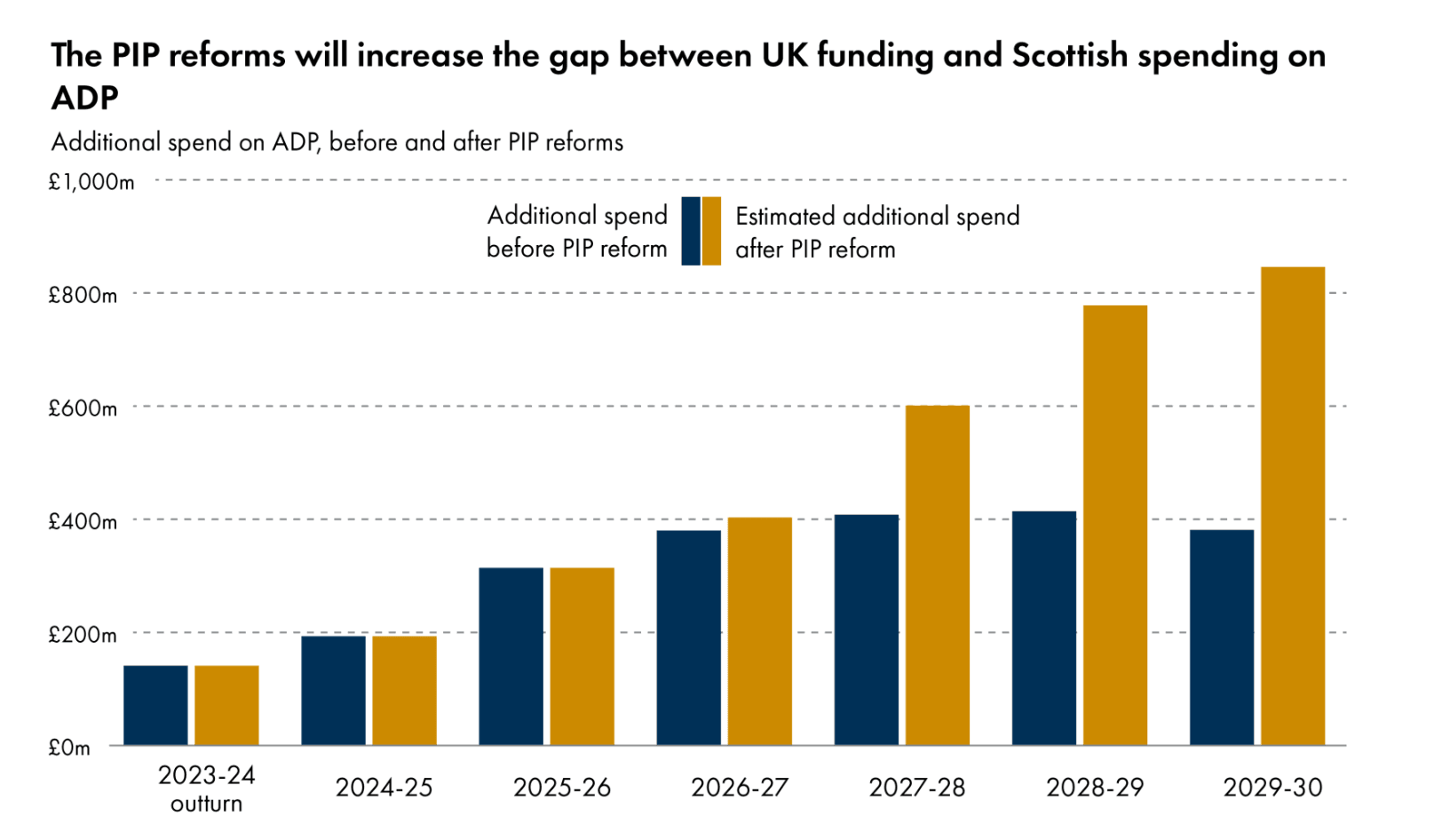Updated 31 March 2025
The UK Government has announced reforms to health and disability benefits. This includes some significant changes to Personal Independence Payments (PIP) and Universal Credit. There are also implications for those who may no longer be eligible for Carers Allowance.
What changes to PIP are being proposed?
The main changes proposed for PIP in the green paper include:
- Claimants will need to score a minimum of 4 points in at least one of the ten activities to be eligible for the daily living component of PIP. It will still be necessary to score 8 points in total. This will make it difficult for people with lower levels of daily care needs to qualify for PIP. This change is due to apply from 2026/27.
- The PIP assessment will include more face to face assessments. The timing for when this will be introduced is still to be confirmed. Those with the highest levels of a permanent condition or disability will no longer face reassessment.
- PIP will become the gateway to qualifying for the health related addition in Universal Credit, replacing the Work Capability Assessment (WCA). This is due to apply from 2028/29.
- The age for qualifying for PIP will be raised to 18. Timing TBC.
How will these proposed changes to PIP affect disabled people in Scotland?
It is important to note that the main reforms to PIP are not due to take effect until after April 2026, by which time it’s expected that everyone on PIP in Scotland will have transferred to Adult Disability Payment (ADP).
The Scottish Government has also ruled out similar changes to Adult Disability Payment.
So even although these reforms are unlikely to affect anyone directly in Scotland – there are still a couple of concerns:
- If spending on PIP falls, the amount of funding provided to the Scottish Government through the block grant adjustment (BGA) falls by a similar proportion.
- If PIP becomes the gateway to Universal Credit health element in England and Wales, will ADP take on this function in Scotland?
The financial implications for Scotland
PIP spend in England and Wales is forecast to be £4.1 billion lower in 2029-30. (The Office for Budget Responsibility – OBR)
For every £1 billion reduction in UK government spending on PIP, we are likely to see a £115 million reduction in the PIP Block Grant Allocation for Scotland. (Fraser of Allander Institute).
Even before these reforms were announced, the Scottish Government was forecast to spend £381 million more on Adult Disability Payment in 2029-30 than it received from the PIP Block Grant Allocation.
If the UK Government’s PIP reforms go ahead then this could increase that additional spending requirement by £470 million in 2029-30 which will mean that the Scottish Government will need to find an additional £850 million to deliver Adult Disability Payments in 2029-30.

Source: Scottish Parliament Information Centre
What do the changes to PIP mean for carers in Scotland?
According to the Office for Budget Responsibility (OBR), PIP reforms are forecast to result in around 400,000 fewer people receiving PIP in England and Wales. The carers of those losing PIP will also lose entitlement to Carer’s Allowance.
According to the DWP Impact assessment this could result in an estimated 150,000 carers in England and Wales losing their carers allowance.
This will result in a reduction in the Block Grant Allocation for Carer Support Payment in Scotland, which will mean that Scottish Government will have to make up any shortfall in the spending forecast for the Scottish Carer Support Payment.
How will changes to Universal Credit impact those with disabilities or long term conditions?
From April 2026, the standard allowance for both new and existing claimants will increase. The rate for a single person aged 25 or over will rise from £92 per week in 2025/26 to £106 per week by 2029/30.
The work capability assessment, which checks eligibility for the health related top-up to universal credit, will be scrapped by 2028 and replaced by a health element which is likely to be linked to the PIP assessment.
For new claimants, from April 2026, this work capability/health element will be almost halved, from £97 a week in 2024/25 to £50 a week in 2026/27, and then frozen at this level until 2029/30.
The Government has stated that individuals with the most severe, lifelong health conditions, who have no chance of improvement and cannot work, will have their incomes safeguarded through an additional premium.
For existing claimants, the health element will be frozen at the current rate of £97 a week until 2029/30.
Access to the health element of Universal Credit will be delayed until a claimant is aged 22.
We don’t yet know how Adult Disability Payment claimants in Scotland will access the health element of Universal Credit in 2028.
The Scottish Parliament Information Centre have produced a useful briefing paper to explain how the changes being proposed by the UK Government will impact people in Scotland. You can download the briefing paper from here.

